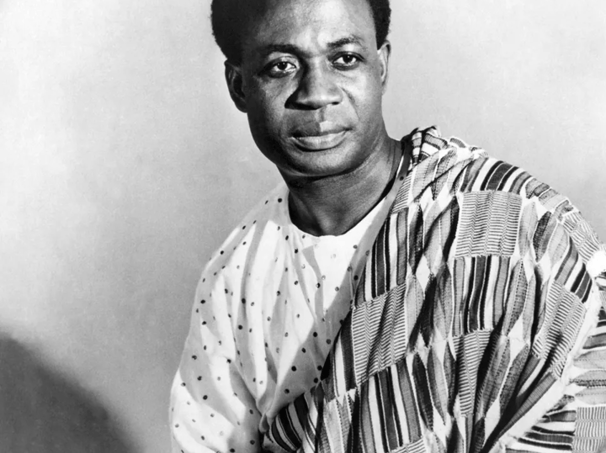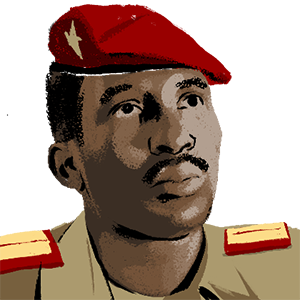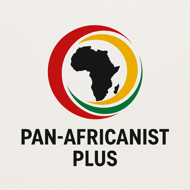Honoring Bold African Leadership
Celebrating those who act decisively for Africa's future, the PAP Hall of Fame recognises leaders committed to safeguarding the continent's wealth and sovereignty for its people.


1. Kwame Nkrumah (Ghana) – Leader (1957–1966)
✅ Pan-African Visionary: Pioneered African unity and was instrumental in founding the Organisation of African Unity (OAU) (now African Union).
✅ Economic Independence: Advocated for industrialisation, launching Ghana’s state-led economic development projects.
✅ Infrastructure Development: Built key projects like the Akosombo Dam to support energy independence and African self-sufficiency.
The PAP Hall of Fame: A Legacy of Action
The PAP Hall of Fame does not honour those who speak of change but those who act decisively to secure Africa’s future. It is reserved for leaders who have taken bold steps to protect African wealth, sovereignty, and strategic interests, ensuring that Africa thrives on its terms, for its people.
Celebrating Kwame Nkrumah's Legacy
Kwame Nkrumah (Ghana) – Leader (1957–1966) is rightly regarded as the Father of Pan-Africanism and the foundational figure of Pan-Africanist Plus (PAP) due to his unmatched commitment to African unity, economic sovereignty, and political liberation. His leadership was instrumental in Ghana becoming the first sub-Saharan African country to gain independence in 1957, setting a precedent for anti-colonial struggles across the continent. Unlike many post-independence leaders who maintained economic and political ties with former colonial powers, Nkrumah championed full economic independence, advocating for the industrialisation of Africa and ownership of natural resources to benefit Africans.


Inspiring Leadership
Pan-Africanism


His vision extended beyond Ghana; he was a driving force behind the establishment of the Organisation of African Unity (OAU) in 1963, laying the groundwork for what is now the African Union (AU). His call for a United States of Africa, with a common military, currency, and economic strategy, directly aligns with PAP principles of risk reduction and strategic resource control. Nkrumah’s leadership in founding key financial institutions like the African Development Bank (AfDB) and the push for a gold-backed African currency also positioned him as a true pioneer of African financial independence, a core PAP tenet. His belief that Africa’s wealth must serve Africans, not foreign interests, and his tireless work towards a borderless, self-reliant Africa free from neocolonial control, cemented his status as the ideological and strategic architect of both Pan-Africanism and the PAP movement.
Our services
Provide a general summary of the services you provide, highlighting key features and benefits for potential clients.
Thomas Sankara (Burkina Faso) – Leader (1983–1987)


✅ Self-Sufficiency & Agricultural Reform: Led a food independence movement, making Burkina Faso self-sufficient in food production within four years.
✅ Anti-Corruption & National Development: Implemented strict anti-corruption policies and prioritised local industries over foreign imports.
✅ Women’s Empowerment & Social Reforms: Introduced progressive gender policies, promoting women in leadership and banning forced marriages.




Muammar Gaddafi (Libya) – Leader (1969–2011)
✅ Economic Transformation & Wealth Redistribution: Used oil wealth to fund free healthcare, housing, and education, making Libya one of Africa’s most developed nations.
✅ African Financial Independence: Championed the African gold-backed currency project, challenging Western financial control.
✅ Pan-African Investment: Funded African development projects and infrastructure through the Libyan African Investment Portfolio.
Write a short text about your service. Highlight key benefits for potential clients.
Service title
Past Legacy Leaders
Celebrating impactful actions securing Africa's wealth and sovereignty.








Past African Leaders in the Pan-Africanist Plus (PAP) Hall of Fame
4. Julius Nyerere (Tanzania) – Leader (1961–1985)
✅ African Socialism (Ujamaa): Established a self-reliant economic model, reducing reliance on Western aid.
✅ Education & Rural Development: Prioritised free education and rural development, uplifting millions of Tanzanians.
✅ Pan-African Diplomacy: Played a major role in liberation movements against colonial rule in Zimbabwe, Mozambique, and South Africa.
5. Patrice Lumumba (Democratic Republic of Congo) – Leader (1960)
✅ Resource Nationalism: Sought full Congolese control over mineral wealth, resisting foreign exploitation.
✅ Pan-African Alliances: Called for continental unity and economic self-reliance, opposing Western interference.
✅ Grassroots Empowerment: Advocated for equal development across Congo, rejecting elitist governance.
Our services
Provide a general summary of the services you provide, highlighting key features and benefits for potential clients.
Service title
Write a short text about your service. Highlight key benefits for potential clients.


Service title
Write a short text about your service. Highlight key benefits for potential clients.
Write a short text about your service. Highlight key benefits for potential clients.
Service title




Legacy Action
Current African Leaders in the Pan-Africanist Plus (PAP) Hall of Fame. Honoring leaders securing Africa’s future through decisive actions.


Bold Leadership
Ibrahim Traoré (Burkina Faso) – Leader since 2022
Recognising impactful decisions for Africa's wealth and sovereignty.
✅ Resource Ownership: Enforced greater state control over Burkina Faso’s gold and natural resources, ensuring more profits remain within the country.
✅ Pan-African Unity & Security: Strengthened ties with Mali and Niger under the AES framework, promoting regional economic cooperation.
✅ Investment in Local Development: Prioritised rural development and self-sufficiency, investing in agriculture and local industries to reduce foreign dependence.


Strategic Interests
Promoting African self-reliance and sustainable development initiatives.




Cultural Heritage
Celebrating African leaders who shaped the continent's destiny.
Future Vision
Inspiring actions for a prosperous and sovereign Africa.
→
→
→
→
Current African Leaders in the Pan-Africanist Plus (PAP) Hall of Fame
1. Assimi Goïta (Mali) – Leader since 2021
✅ Economic Sovereignty: Advocated for resource nationalisation by challenging unfair mining contracts and pushing for greater Malian control over gold and mineral wealth.
✅ Regional Unity & Self-Reliance: Key architect of the Alliance of Sahel States (AES) with Burkina Faso and Niger, promoting collective security and economic independence.
✅ Foreign Policy Realignment: Shifted alliances away from Western dependency, fostering strategic partnerships with African and non-Western states to reduce external control.
2. Mamady Doumbouya (Guinea) – Leader since 2021
✅ Economic Independence & Resource Control: Revoked exploitative mining contracts that disadvantaged Guinea, ensuring greater state oversight of bauxite and mineral exports.
✅ Investment in National Infrastructure: Redirected funds towards domestic industrialisation and development projects, boosting Guinean self-sufficiency.
✅ Pan-African Diplomatic Engagement: Strengthened ties with other African nations to foster economic collaboration and regional security outside of Western influence.
3. Abdourahamane Tiani (Niger) – Leader since 2023
✅ Resource Nationalisation: Took steps to secure greater control over Niger’s uranium, a key strategic resource long dominated by foreign interests.
✅ Regional Economic Cooperation: Strengthened Niger’s trade and security ties with Mali and Burkina Faso, promoting mutual economic growth.
✅ Infrastructure and Economic Reforms: Focused on investing in national industries and energy projects to reduce dependency on external aid.
Action
Empowering Africa through transformative initiatives and collaboration.
Contact
Liberation
info@panafricanistplus.com
Office: +44 208 145 3355
Copyright © 2025. All rights reserved. Social Interest and Responsibility (SIR) Limited trading as Pan Africanist Plus
Address: Ability House, 121 Brooker Road, Waltham Cross, EN9 1JH, United Kingdom
